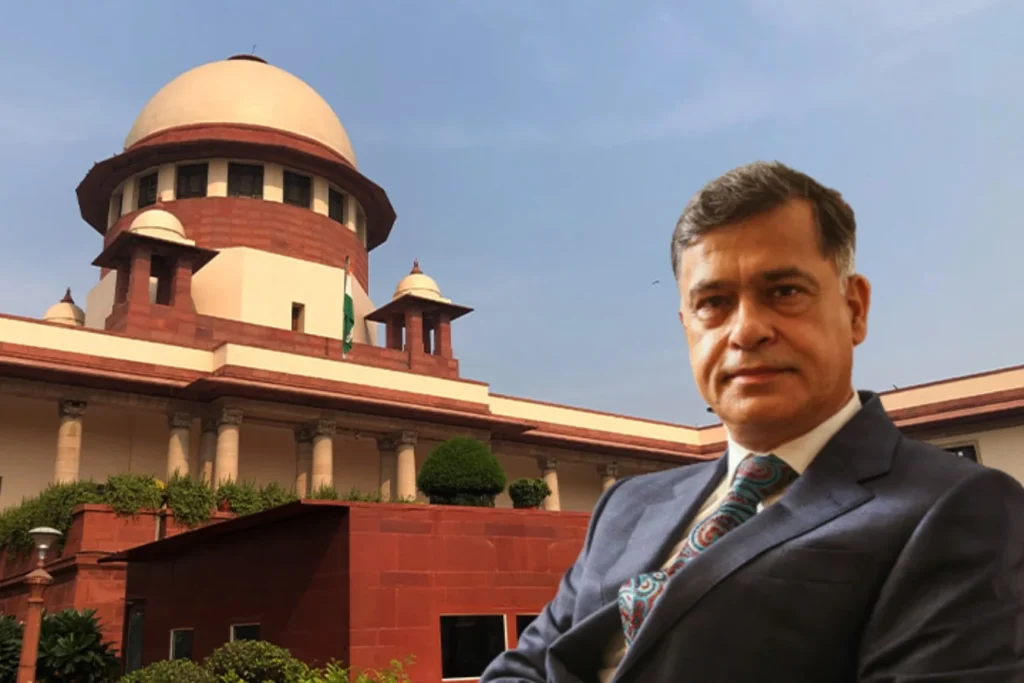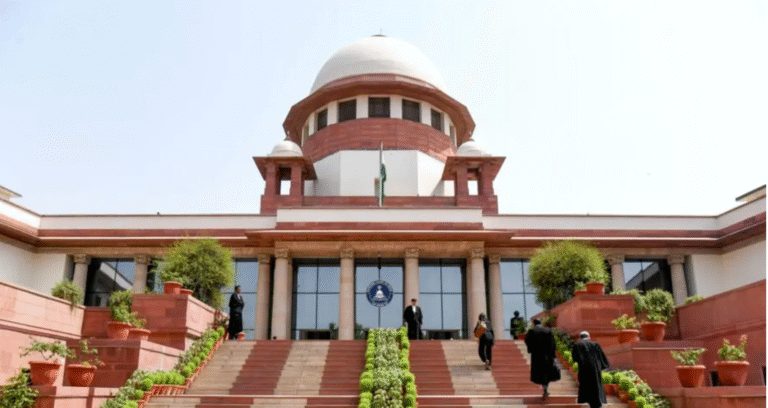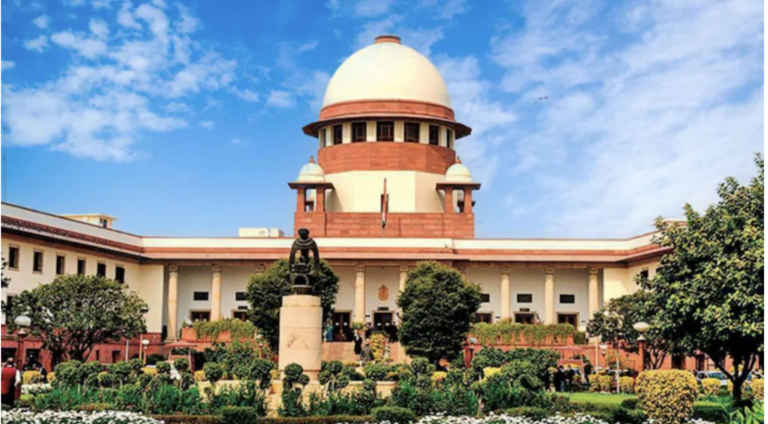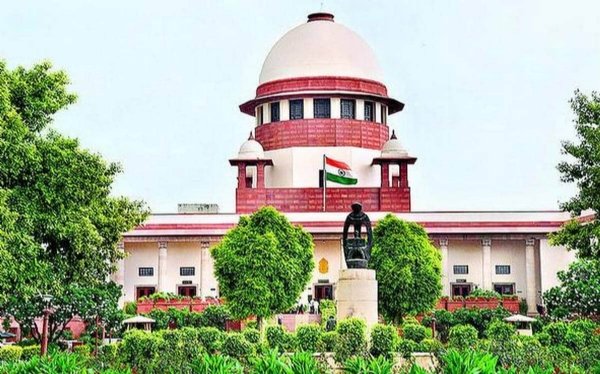Full Bench of the Supreme Court discontinued the appointment of Senior Adv. Siddharth Luthra as Amicus Curiae and directed the Attorney General to assist the Court.

The dishonesty and fraudulent conduct of Mr. Luthra upon the Court have been exposed in several matters, including the case of Prashant Bhushan v. Union of India, 2022 SCC OnLine SC 2222.
Mr. Luthra misled the Judges by citing overruled judgments to secure convictions against advocates. Consequently, the Judges who relied on his submissions faced criticism, and their orders were later overruled.
Mr. Luthra also stands accused of obtaining bail orders by playing fraud upon the Supreme Court and accepting money in the name of Judges. The Ministry of Home Affairs has directed the Bar Council to conduct an investigation into the matter.
Furthermore, proceedings have been sought against Advocates Milind Sathe, Nitin Thakkar, and others who have allegedly engaged in similar conspiracies and have committed criminal offences as well as acts of professional misconduct by fabricating and submitting false complaints against advocates, with the ulterior motive of shielding corrupt Judges and obstructing lawful proceedings initiated in the interest of judicial accountability.
Brief Background of the case:
In the historic contempt proceedings against advocates, a Bench presided over by Hon’ble Justice Deepak Gupta, by order dated 30.09.2019, appointed Advocate Siddharth Luthra as Amicus Curiae.
During the course of the hearing, Adv. Siddharth Luthra advanced arguments in support of the complaint filed by one Mr. Milind Sathe, contending that: —
(i) He misguided the Court with submission that the decision of the Two-Judge Bench in Pritam Pal v. High Court of M.P., 1993 Supp (1) SCC 529, and old decision in C. K. Daphtary’s case are binding, and the Supreme can convict and sentence advocates or citizens at its free will and no law and constitutional provisions can bind the supreme Court. Court is not bound to follow the law and the procedures.
(ii) He further argued that the procedure for taking cognizance of contempt, as laid down in P.N. Duda v. P. Shiv Shanker, (1988) 3 SCC 167, is not mandatory.
(iii) He also submitted that even if a Judge is corrupt or commits an error, no citizen or advocate has the right to make a complaint against such a Judge, and that even if the allegations against the judge are true and based on sound proofs, the Court may still punish the complainant only for speaking against the Judges.
All the aforesaid submissions were in fact overruled by the Full Bench and Constitution Benches of the Hon’ble Supreme Court in Bal Thackrey v. Harish Pimpalkhute, (2005) 1 SCC 254; Subramanian Swamy v. Arun Shourie, (2014) 12 SCC 344; Indirect Tax Practitioners’ Association v. R.K. Jain, (2010) 8 SCC 281; and Hari Das v. State of West Bengal, (1964) 7 SCR 237, wherein it has been specifically held that: —
(i) The directions issued in P.N. Duda v. P. Shiv Shanker, (1988) 3 SCC 167, are binding in nature, and any non-compliance with those directions vitiates the entire contempt proceedings.
(ii) The judgment in Pritam Pal v. High Court of M.P., 1993 Supp (1) SCC 529, stands overruled, and the Court is bound to follow the mandatory provisions of the Contempt of Courts Act, 1971.
(iii) Whenever there exists material proof of misconduct or corruption by a Judge, every citizen has a constitutional duty under Article 51-A of the Constitution of India, and a professional obligation under the Bar Council of India Rules, to expose such misconduct and corrupt practices. Any sycophantic individual or association seeking to initiate contempt proceedings for the publication of truth, shall be liable to pay exemplary costs and may also face prosecution under Sections 211 and 192 of the Indian Penal Code.
But, the Bench comprising Justices (Retd.) Deepak Gupta and Aniruddha Bose relied upon the submissions of Advocate Siddharth Luthra and based their findings on said overruled judgments, while disregarding binding precedents of the Constitution Benches, thereby convicting the advocates. [Vijay Kurle, In re, (2021) 13 SCC 616].
Thereafter the said judges faced strong condemnation and criticism for not having knowledge of law and for misuse of contempt jurisdiction for punishing Advocates based on the overruled judgments of smaller benches.
Renowned activist and Senior Advocate Asim Pandya, who is also the author of a well-known book on the law of contempt, published an article on LiveLaw dated 16.09.2020 titled “Arrogation of Unlimited Contempt Power by the Supreme Court – A Hornets’ Nest Stirred Up Again,” wherein he critically analysed the said judgment and raised grave constitutional concerns over the arbitrary expansion of contempt powers.
In the said article, Senior Advocate Asim Pandya elaborated how the judgments in Re: Vijay Kurle and Re: Prashant Bhushan constitute bad precedents, being founded upon overruled pleadings and contrary to binding judgments of larger Benches.
The said judgment was subsequently challenged by Advocates Prashant Bhushan, Nilesh Ojha, Vijay Kurle, and Rashid Khan Pathan through writ petitions filed before the Hon’ble Supreme Court. The petitions were listed for hearing on 17.05.2022 before a Three-Judge Bench of the Supreme Court.
On that day, Senior Adv. Rajeev Dhavan, Adv. Nilesh Ojha, Adv. Partho Sarkar , Adv. Vijay Kurle, Adv. Tanveer nizam, Advocate Anand Jondhale, Adv. Ishwarlal Agarwal and approximately 200 other advocates of the Supreme Court appeared in support of the writ petitions. During the proceedings, Advocate Siddharth Luthra, who had previously taken a stand against the advocates, appeared on his own and attempted to make submissions, claiming to continue as Amicus Curiae. However, the Hon’ble Chief Justice of India declined to hear him, observing that his role had concluded upon completion of the Re: Vijay Kurle trial, and directed that the Attorney General for India would henceforth assist the Court.
Being humiliated before hundreds of advocates and realizing that his misconduct had been exposed, Advocate Siddharth Luthra left the courtroom. Thereafter, the Full Bench admitted the writ petitions and granted interim relief to the petitioners by suspending their sentences. [Prashant Bhushan v. Union of India, 2022 SCC OnLine SC 2222]
The judgment in Re: Vijay Kurle was proven to be rendered per incuriam, being based on the overruled decision in Pritam Pal v. High Court of M.P., 1993 Supp (1) SCC 529, which had been expressly overruled by the Three-Judge Bench in Bal Thackrey v. Harish Pimpalkhute, (2005) 1 SCC 254. Secondly the judgment in C. K. Daphtary v. O.P. Gupta, (1971) 1 SCC 626, declared to be statutorily and impliedely overruled and no longer binding precedent by the Supreme Court in P. N. Duda v. P. Shiv Shankar, (1988) 3 SCC 167 (para 39) and Biman Basu v. Kallol Guha Thakurta, (2010) 8 SCC 673 (para 23).
However, Adv. Siddharth Luthra once again sought to rely upon the same overruled judgment with the apparent intent to mislead the Hon’ble Delhi High Court, and urged for the conviction of practising advocates in Contempt Proceedings Against Tis Hazari Lawyers, In re, (2023) 4 HCC (Del) 100. The Hon’ble High Court, however, discharged the concerned advocates.
This incident further reveals the intellectual dishonesty, sophistry, and gross professional misconduct of Advocate Siddharth Luthra. Consequently, several members of various Bar Associations including Supreme Court Lawyers Association have demanded that his designation as Senior Advocate be withdrawn forthwith, that he be debarred from appearing before any court in India, and that his sanad (license to practice law) be suspended.
In another matter, Advocate Siddharth Luthra, while appearing before the Hon’ble Supreme Court on behalf of his client Ms. Geeta Shejwal in an application for anticipatory bail, is alleged to have played fraud upon the Court by making false and misleading representations that all the co-accused had already been granted anticipatory bail. Relying upon such misrepresentation, the Hon’ble Supreme Court was induced to grant anticipatory bail to the said accused.
Subsequently, it was discovered that no such anticipatory bail had, in fact, been granted to any of the co-accused. A detailed complaint was thereafter filed seeking prosecution of Advocate Siddharth Luthra for perjury and initiation of disciplinary proceedings for gross professional misconduct and abuse of the process of Court. It has further been alleged in the said complaint that Advocate Siddharth Luthra had accepted an amount of ₹10 crores purportedly in the name of certain Hon’ble Judges of the Supreme Court.
The Ministry of Home Affairs, Government of India, has taken cognizance of the said complaint and has forwarded it to the Bar Council of India and the concerned State Bar Council for appropriate disciplinary and penal action in accordance with law.



